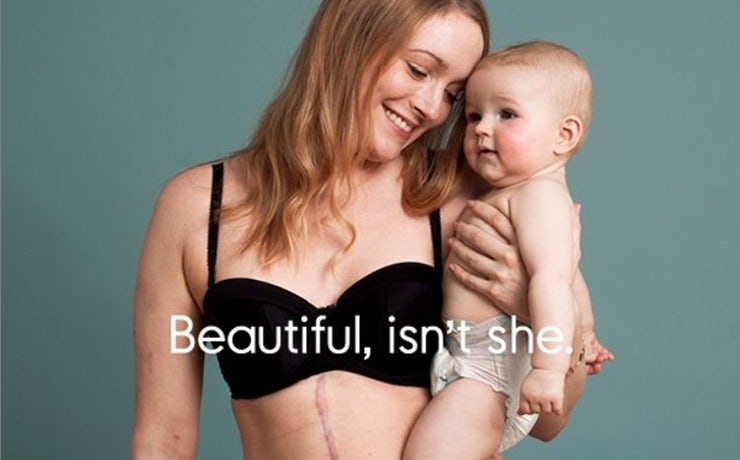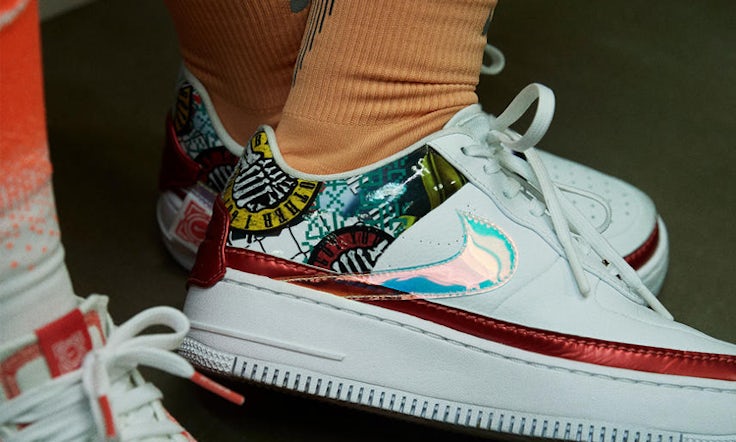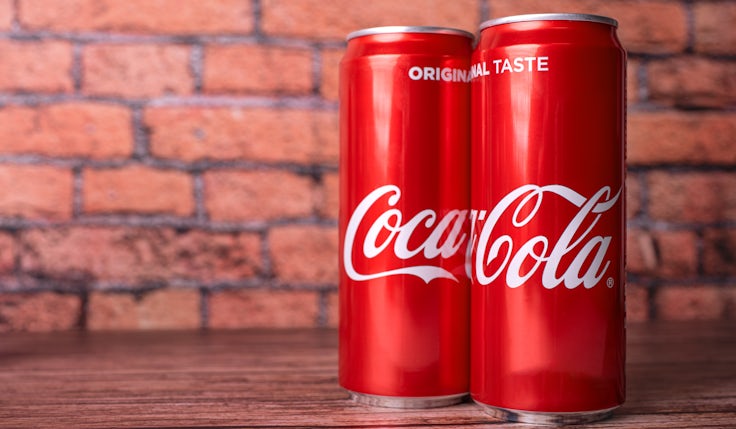How Nike and Mothercare are smashing female stereotypes
From record-breaking Olympians and world beating tennis sensations to real mums just weeks on from giving birth, Nike and Mothercare’s new campaigns capture the spirit of female empowerment, albeit in very different ways.
A week ahead of International Women’s Day on the 8 March, two brands are standing up for female empowerment, albeit it in radically different ways.
Making its debut at the Oscars, Nike’s Dream Crazier film shines a spotlight on game changing female athletes who have broken down barriers and inspired future generations. The advert marks the start of Nike’s celebration of women in sport ahead of the FIFA Women’s World Cup, which kicks off in France this June.
Narrated by tennis superstar Serena Williams, the campaign features footage of quadruple gold medal winning Olympic gymnast Simone Biles, American sabre fencer Ibtihaj Muhammad and US snowboarder Chloe Kim, the youngest woman to win an Olympic snowboarding medal aged just 17.
While the first film Dream Crazy celebrated the contribution of former quarterback Colin Kaepernick to the Black Lives Matter movement in the face of fierce opposition from the NFL establishment, this time Nike has thrown its support behind two-time Olympic 800 metre champion Caster Semenya. The South African athlete is currently challenging proposals made by athletics governing body the IAAF to introduce a testosterone limit that would impact the ability of intersex and transgender athletes to compete in women’s competitions.
Tapping into the mood of the moment, Williams’ powerful narration addresses the sexist assumptions often made about women, like if they show emotion they are “dramatic” or if they get angry they are “hysterical, irrational or just being crazy”.
READ MORE: Nike ‘proud’ of Colin Kaepernick ad as campaign drives ‘record engagement’
Not only is the campaign a perfect companion in tone and emotion to Dream Crazy, but it also reflects a growing desire from brands to interrogate the language used to describe women, versus the narrative often saved for men.
While Nike’s campaign inspires by celebrating the near superhuman performances of female athletes, this week another equally valid campaign put female empowerment front and centre.
Mothercare’s #BodyProudMums is a new campaign celebrating the beauty of the post-birth body, a stage of motherhood rarely portrayed in the media. Runner-up in Transport for London’s Women We See competition behind Holland & Barrett’s menopause taboo breaking campaign, #BodyProudMums is intended to spark a positive conversation by helping mums feel confident and proud of their bodies.

Featuring 10 real mums, the campaign imagery was shot by London-based photographer Sophie Mayanne, who pledged in 2017 to never digitally manipulate skin in her work. Her aim was to depict “the raw and incredibly emotional experience of childbirth”.
Mothercare used Instagram to share the stories of the different women featured in the campaign, many of whom talk about coming to terms with the way their body has changed post-pregnancy and the pressure from social media to “snap back” into shape.
Mum of six Nardy, who appears in the campaign 20 weeks after giving birth, argues less pressure should be put on mums to immediately regain the body they had before pregnancy and instead the focus should be on their “overall health mentally, emotionally and physically”.
Twenty-nine weeks on from giving birth, new mum Louise says she wanted to take part in the campaign not just for her own self-confidence, but also to draw attention to post-natal disease and complications. Giving birth caused Louise to go into sudden liver failure due to a rare pregnancy related disease, which required an emergency liver transplant and forced her to spend the first month of her daughter’s life in hospital.
#BodyProudMums counteracts the slavish – and unrealistic – social media obsession with celebrity mums and influencers “bouncing back” into shape a matter of weeks after giving birth. The campaign has such a strong visual impact because unfiltered images women’s bodies in the weeks after giving birth are rarely ever seen and certainly never celebrated.

From a branding perspective, #BodyProudMums also fits in with the tone of Mothercare’s First Steps campaign. Rolled out in November, the retailer’s first major ad campaign for a decade was aimed at starting “a new conversation” around what the brand stands for, enabling it to demonstrate its “expertise and empathy” by putting parents at its heart.
Since landing three days ago the #BodyProudMums campaign has sparked a wave of love on social media, generating much needed goodwill for the babycare specialist. Times have been hard for Mothercare, which is in the process of closing 60 stores by June, putting an estimated 900 jobs at risk. By the end of March, the retailer will have just 79 UK shops, down from 137 in May 2018. Sales are also on the slide, down 11.4% in store and 16.3% online in the 13 weeks to 5 January.
READ MORE: Mothercare pulls on heartstrings with first major ad campaign in a decade
However, instead of giving into the gloom and putting the breaks on creativity, Mothercare has demonstrated a clear desire to identify with real parents and shown it is prepared to work hard to put its brand back on the map.
In their different ways, both campaigns have captured the strength of women who defy expectations. Whether it is landing a double cork 1080 on an icy half-pipe, winning 23 Grand Slams, or being proud to show off your post-pregnancy body complete with scars and stretchmarks, all these women are challenging convention. Amen to that.







